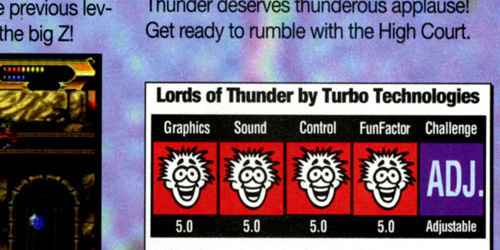
Media criticism is hard. Everyone’s a critic in some capacity (you’re reading one right now), but much like elbows or other body parts, having an opinion isn’t exactly revolutionary. There are precious few critics out there who manage to rise above the fray and illuminate their thoughts with clarity, ingenuity, and sometimes even wit. And while film, music, and other entertainment mediums have their fair share of good criticism out there, gaming’s critical landscape is pretty barren at the moment.
And a large reason why games criticism seems to languish (outside of academic circles thank you very much) is that the review is given no respect. And honestly, why should anyone respect game reviews? They’re a mish-mash of some of the worst aspects of games journalism. Reviewers are prone to hype, their criticisms are often jumbled, they focus on arbitrary aspects of the game, they treat games like software applications with checklists, they’re overly reliant on scores and numbers, there’s no sense of history or context, etc., and etc. The game review as a form of criticism in game is woeful to say the least.
Shockingly enough, the idea that the modern game review is fundamentally broken is not a new idea. When heavy hitters like Kotaku, N’Gai Croal, and Stephen Totilo have discussed this in far greater detail than this simple blog post. So the consensus is decided: game reviews suck and people know they suck.
Yet despite this apparent agreement on the sorry state of game reviews and criticism, the same old problems continue to persist. GameDaily’s recent fluff piece about 10 out of 10 scores they’ve come to regret is just another example of this phenomenon. All of the games on that list were given 10s not because of their quality, but due to a combination of reviewer preference, hype, and plain poor judgment.
There are a few publications notorious for being stingy with scores (most notably Edge). There are even fewer publications that effectively use the entire scale for reviewing (a complaint for another time). But to give a game at 10 out of a 10 review scale, the mark of perfection, is to ask what exactly makes a game a 10 rather than a 9. It’s obviously not perfection because perfection is to say that a game is without a single flaw or blemish which is clearly not true. When one rates a game a perfect score then, is it because that game was a complete execution of a particular vision or design? Was it because that game was in complete harmony with all its systems and elements to form an amazing experience? Was it because that game was a daring experiment with new ideas, systems, and mechanics never before seen in games?
There’s just no agreement on what game reviews are suppose to do in general. Some people grade each element of a game individually and others don’t. Some people value innovation over playability, some value polish over originality, some value the whole package rather than the individual game. And it doesn’t help that at least half the people who do reviews aren’t qualified to judge games beyond the veneer. Some reviewers admittedly don’t even devote a significant amount of time to playing the games they claim to judge.
This is why I welcome the rise of internet reviewers who are at least honest about their personal biases and honest about their views on a game. Reviews such as the Yahtzee and his Zero Punctuation series of reviews provide viewers with a certain perspective for critiquing games. Yahtzee is honest about what he cares about, he likes immediate feedback, he likes fun, he enjoys interactions with unforeseen consequences. He’s not a perfect reviewer and damn well I disagree with him about half the time, but at least he provides useful information amidst much reviewing noise.
Really, that’s all I ask for. Very rarely in any critiquing fields will you find a critic who is your essential voice. Instead, we tend to rely on an aggregate of people we trust (and sites like Rotten Tomatoes or Metacritic are shortcuts to this). Reviewers need to avoid trying to judge games in some faux software application for PC Magazine review and instead approach games, well, like games! Play the hell out of something and let loose on your (valid) critiques.
Without being Tim Roger though please.
Leave a Reply